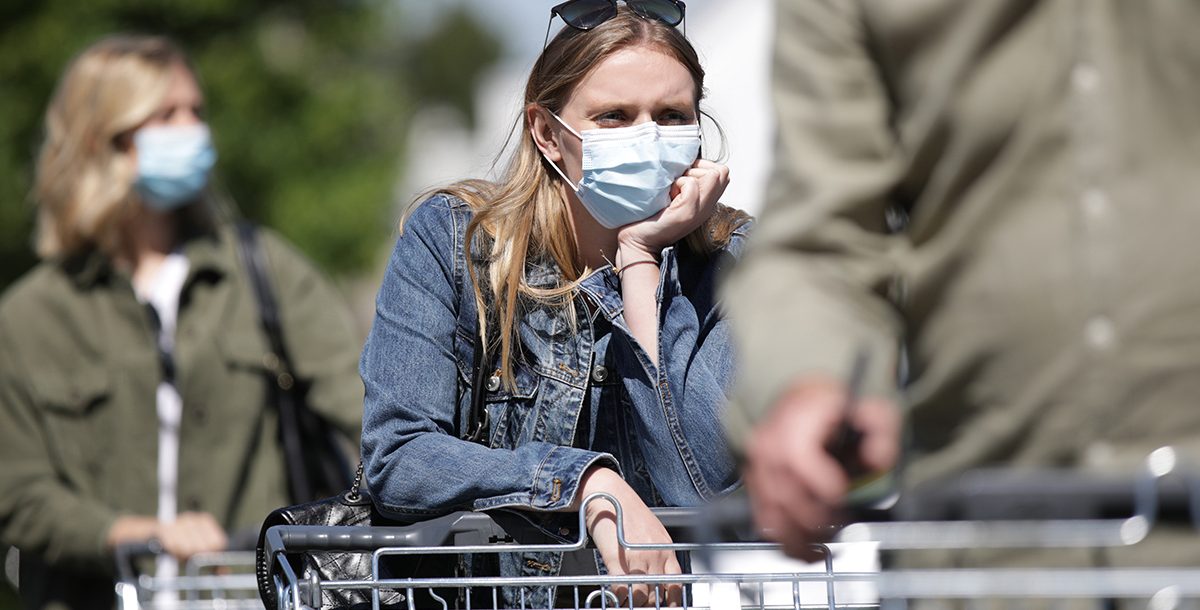For almost everyone on the planet, COVID-19 has been a part of our lives since March 2020. We’re constantly hearing about it on the news. It’s also changed the way we work, go to school, shop, travel and socialize.
If you’re feeling overwhelmed from all of this or like you’re “over it,” you’re not alone. Pandemic fatigue is very real.
What exactly is pandemic fatigue?
Pandemic fatigue is usually defined as a lack of motivation to follow safe behaviors during a pandemic. Your emotions and personal experiences may impact this. Maybe you went to the grocery store without a face mask and didn’t get sick, so you think it’s silly to wear one. Your perceptions of what’s going on may also play a role. Maybe you’re tired of the news and decided to stop watching or keeping up with the status of the pandemic.
All of these feelings are normal. It’s easy to get frustrated with the current world situation.
Who is at risk for pandemic fatigue?
Right now, basically anyone and everyone is at risk for pandemic fatigue. People who work in a demanding job are definitely at risk, including those in the medical field. People with demanding jobs may feel isolated from their loved ones at this time. They may also feel hopeless.
Younger people also tend to be at risk. Those under 50 are constantly hearing about how COVID-19 mainly affects older people, so they may feel like it’s not necessary for them to keep up with precautions.
How do you know if you have pandemic fatigue?
Do you wonder if you have pandemic fatigue? Take a look at some of the symptoms and see if they fit what you’re going through right now.
- You don’t want to take safety precautions any longer, like wearing a mask or practicing social distancing.
- You feel like you’re not doing a good job at your workplace, or you may even be less productive.
- You feel like you have no control over your life.
- You’re anxious, especially about the future.
- You’re feeling cynical about the pandemic and the world in general.
- You’re feeling emotionally exhausted.
- You’re frustrated with those who do continue to take safety precautions.
What can you do to manage pandemic fatigue?
To manage pandemic fatigue, you can start by staying connected with your friends, family and co-workers. Even if you don’t see each other in person, find ways to socialize virtually. This will help you keep your sense of community.
You should also aim to keep a routine, even if it doesn’t look like the one you had before the COVID-19 pandemic. Get up at the same time each day. Exercise. Eat healthy meals. Work at the same time each day, even if you work from home now.
It’s very important to find healthy ways to cope with your stress. Exercise. Read. Go for a walk. Take a bath. Meditate. Don’t rely on unhealthy coping mechanisms, like drugs and alcohol.
And finally, seek professional help if you need it. Your mental health is just as important as your physical health. A therapist or counselor can help you figure out how to stay strong so that your behavior doesn’t put you or anyone else in your life at risk.
Managing your pandemic fatigue is so important. Getting your mental health back on track will help you avoid burn out and continue to take important steps to protect your physical health as well as the health of your community. So, while it is completely normal to have negative feelings at this time, don’t let these feelings stop you from doing what you know you need to do to stay safe, like wearing a face mask, practicing social distancing and getting vaccinated for COVID-19.
Stay updated on what Bon Secours is doing related to COVID-19.





